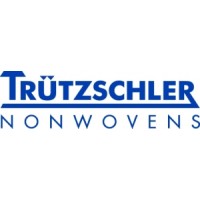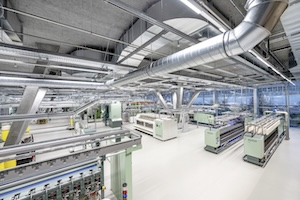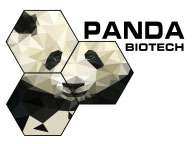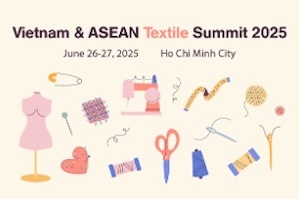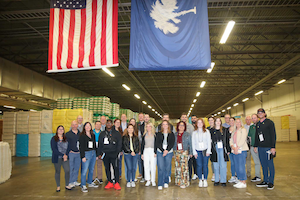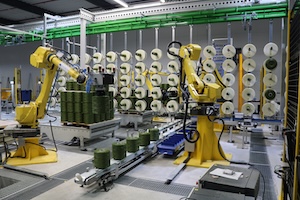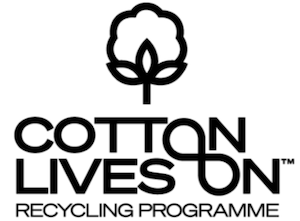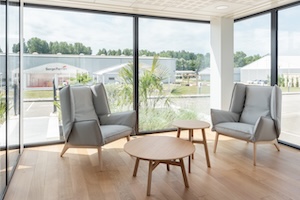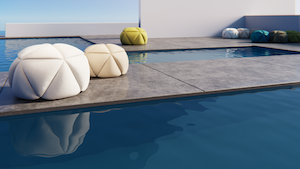 FRANKFURT, Germany— April 15, 2025 — With the new “Texpertise Econogy Insights”, Messe Frankfurt’s textile trade fairs are shining a spotlight on five core issues facing the textile and clothing industry as it undergoes a transformation targeted at greater sustainability. These key themes are based on the results of the sustainability check offered to exhibiting companies as part of the Texpertise Econogy textile sustainability program and conversations with international textile experts.
FRANKFURT, Germany— April 15, 2025 — With the new “Texpertise Econogy Insights”, Messe Frankfurt’s textile trade fairs are shining a spotlight on five core issues facing the textile and clothing industry as it undergoes a transformation targeted at greater sustainability. These key themes are based on the results of the sustainability check offered to exhibiting companies as part of the Texpertise Econogy textile sustainability program and conversations with international textile experts.
Textile waste equivalent in volume to 370,000 fully-loaded Airbus aircraft, a recycling rate of one per cent and 99.7 percent of micro, small and medium-sized enterprises: the textile and clothing industry is not just a world of superlative figures, but also an industry with one of the most complex supply chains in the world. Where the industry stands in terms of sustainability and what drivers and obstacles are playing a role in its transformation is the focus of the report “Texpertise Econogy Insights — five central developments for a more sustainable textile industry,” published today by Texpertise, a network of more than 60 Messe Frankfurt textile events in 13 countries.
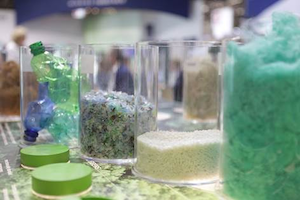
Photo — Messe Frankfurt Exhibition GmbH
“Transformation requires cooperation. The international textile events by Messe Frankfurt serve as key hubs for change in this process. With the international sustainability programme Texpertise Econogy, we are making developments for a more sustainable industry tangible, connecting green pioneers with companies and creating hotspots for knowledge and networking,” said Olaf Schmidt, vice president, Textiles and Textile Technologies at Messe Frankfurt.
Together with renowned experts from textile research, business and associations, Messe Frankfurt analyses five key themes for the sustainable transformation of the international textile and clothing industry: the Sustainable Development Goals (SDGs) as an international benchmark for responsible corporate behavior, transparency and traceability in global supply chains as well as the advantages and disadvantages of natural fibers, synthetic fibers and regenerated fibers in terms of their environmental compatibility and functionality. It also evaluates environmentally friendly process standards and innovative approaches to textile recycling.
Among those interviewed for the report were representatives from Aalto University; Euratex; Fashion for Good; Hohenstein Group; IKEA; Industrial Association for Finishing, Yarns, Woven Fabrics and Technical Textiles (IVGT); Oberbadische Bettfedernfabrik (OBB); Saxon Textile Research Institute (STFI); United Nations Fashion and Lifestyle Network; VDMA Textile Care, Fabrics and Leather Technologies; German Association of Home Textiles Manufacturers and the Wuppertal Institute for Climate, Environment and Energy.
These themes are derived from the results of the Texpertise Econogy Checks, the sustainability check that exhibiting companies can now undergo at 24 of the more than 60 Messe Frankfurt textile events across the world. The check evaluates companies against a set of international sustainability standards in the areas of Sustainable Supply Chain, Materials and Processes as well as Strategy and Innovation. During the period from January 2024 to January 2025, a total of 820 companies at 17 events in Germany, France, the USA and China completed the Econogy Check.
An ongoing commitment to greater sustainability
Since 2008, Messe Frankfurt has played an active role in promoting sustainability within the global textile and fashion industry. At its international textile fairs, it developed curation tools for textile sustainability early on, as well as creating special areas for sustainable textile innovations and integrating sustainability themes into its fringe programs. At the end of 2023, Messe Frankfurt grouped all the sustainability-related activities at its international textile events under one communications umbrella: Texpertise Econogy. The aim of this is to ensure greater visibility for sustainable textile innovations, offer better orientation in a world of increasingly complex sustainability developments and promote knowledge transfer and cooperation within the international textile industry insofar as sustainable transformation is concerned. Since it was launched, Texpertise Econogy has been rolled out to 24 of the approximately 60 Texpertise events across the world.
Messe Frankfurt Texpertise
With a portfolio of more than 60 international textile trade fairs in 13 countries, Messe Frankfurt is the global market leader for textile trade fairs. The trade fair portfolio spans the entire textile industry value chain: Texpertise brings together these events, current issues and a global network of more than 500,000 industry representatives from all over the world. As a central communication platform, Texpertise provides information on the world-renowned trade fair brands and the first-class services offered by Messe Frankfurt.
“Texpertise Econogy Insights” is available as an accessible e-paper and in printed format.
Download the e-paper version here:
https://texpertisenetwork.messefrankfurt.com/frankfurt/en/news-stories/stories/sustainability-the-major-transformation.html#download
Texpertise Newsroom
Information from the international textile industry and Messe Frankfurt’s global textile fairs can be found in the Texpertise Newsroom at www.texpertise-network.com
Posted: April 15, 2025
Source: Messe Frankfurt Exhibition GmbH

